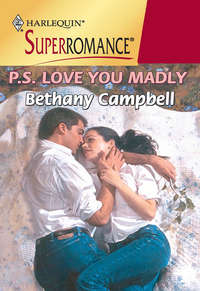
Полная версия
One True Secret
With that, she was out the door and was gone.
Emerson rolled her eyes, thinking, I will not wear something with a spot on it. Why it’d look as if I didn’t care a bit what impression I made—
But then she grinned. “Damn,” she said softly. “She’s right. Exactly.”
WHEN IN THE TROPICS, rent a convertible and don Ray•Bans; this was Eli’s philosophy. Except, of course, in certain parts of the tropics, where it was more prudent to rent a Humvee and wear Kevlar.
He drove north, up Highway 1, while Merriman stared at a map of the Keys in perplexity.
“How many of these islands are there?”
“Around eight hundred or so.”
Merriman shot him a disbelieving look. “Get real. There aren’t eight hundred on this map. No way.”
“A lot are too small to chart. Only about thirty are inhabited.”
Merriman looked at the map again, frowning. The Keys stretched 120 miles from Key Largo, the northernmost, to Key West, the farthest south. “There’s only this one highway connecting them? That’s it?”
“That’s it,” Eli said. “One highway in and out.”
The convertible, a red Chrysler, was crossing a long bridge. Merriman grimaced uneasily. “These damn bridges go over the ocean, man.”
“Right.” Eli nodded calmly. “The Overseas Highway. Forty-two bridges. Great feat of engineering.”
Merriman was unimpressed by the great feat. “What if there’s a wreck or a traffic jam or something?”
“You’re stuck.”
“What if a bridge collapses? Or washes out?”
Eli shrugged. “Same thing. You’re stuck.”
Merriman’s expression became a bit queasy. “At breakfast I heard people talking about a hurricane warning.”
“Tropical storm. It was downgraded.”
“Technicalities,” Merriman grumbled. “I heard the word evacuation. That this thing might hit the Lower Keys.”
“And it might not. It’s been diddling around out there for a week. People are tired of worrying about it.” Eli gave him a measuring glance. “I didn’t take you for a worrier.”
“I’m from Toronto,” Merriman protested. “We don’t have hurricanes. Well, there was one, but it was before I was born. Look, if we have to evacuate, and planes are grounded, this is the only way out? One dinky road?”
“Relax. It’s hurricane season. There are always watches and warnings.”
Eli had played waiting games with hurricanes before. They could change course swiftly, and the storm Merriman was fretting about might never touch Florida.
But right now, the photographer was eyeing the sky with suspicion. It was blue, but gray clouds were sweeping in from the south. The wind made the palm trees bend northward, fronds streaming.
“Don’t worry about the damn weather,” Eli said out of the side of his mouth. “We’re nearly there. Another five minutes, we’ll be at Mandevilla.”
“Maybe they have a storm cellar there. Maybe they’ll share it.”
“Most people don’t have cellars on the Keys.”
Eli turned down a graveled road. Scrub pines and lingam vitae trees grew in a wild tangle on both sides of the road, blocking any view beyond them.
They came to a high iron gate. On either side of it stretched a wall of limestone, six feet tall. Its top was jagged with gray coral that had been cemented into place. Eli stopped beside a limestone kiosk with a speaker. Next to it was a mailbox with no name on it.
They were close enough to the ocean to smell the salt, and under the rush of the wind, Eli heard the murmur of the waves, low and even. Merriman looked about warily. “All of a sudden we’re in the middle of nowhere.”
“Yeah.” Eli recognized the trees growing along the wall. They were poisonwoods, the Keys’ equivalent of poison ivy. Along with the sharp coral, they were there to discourage outsiders from climbing the wall.
Merriman said, “I get the feeling that they really don’t want visitors.”
“There’s a couple of million bucks worth of art behind those walls,” Eli murmured, gazing at them. “You can bet this place has some high security.”
He pushed the button beside the speaker, which crackled into life. “Yes?” A woman’s voice, low and rich, came through the static. “Who is it?”
“Eli Garner and Merriman from Mondragon Magazine. We have a ten o’clock appointment to speak with Miss Roth. Miss Emerson Roth.”
More static. Again the woman’s voice. “All right. Come to the front entrance.” The speaker went dead.
Half a minute passed, then the gate creaked open. The road grew narrower and bumpier, and then, as they rounded a curve, they clattered over a rickety metal bridge that crossed a gully. It was shaded by a grove of tall trees that stood like sentries.
At last they saw the house, almost completely screened by a row of royal poincianas and oleanders. The lawn had a scruffy look. It needed mowing, and its green came as much from weeds as grass.
Eli drove past the trees with their red and white flowers, and for the first time, saw the house clearly. He’d seen it dozens of times in photos, of course, but the photos were old.
The place, no mansion, was smaller than he’d imagined. Although not decaying, it had an air of having seen better days. Still, it was made of blocks of granite, and looked as solid as a vault.
It was the setting, not the dwelling that drew the eye and held it. The house stood on a slight rise, facing a magnificent view of the Gulf. For two hundred yards, the lawn extended, ragged and dappled with wildflowers. Then the lawn gave way to a stretch of clean, dun-colored sand.
The waves pounding the beach were more gray than blue today, but in the distance was a scattering of small islands so green that they seemed jewellike. Out in the cove, Eli saw a dolphin jump and smiled in spite of himself.
Merriman whistled. “What’s that they always say about real estate? Location, location, location.”
Eli didn’t answer. He stared out over ragged grass and flowers, past the beach to where the sea met the sky in a hazy blue-gray line.
“If you’re going to be a hermit, this is a great place to do it,” Merriman said. “A little piece of paradise is right.”
But paradise is showing signs of wear, Eli thought, his gaze drifting back to the house.
The paint on its wooden trim was peeling from the salt air, and a large crack zigzagged up the cement walk that led to the front stairs. The roof of the porch sagged slightly. The flame-of-the-woods shrubs flanking the porch on both sides sprawled untrimmed, an uncontrolled mass of fiery blossoms.
“Scenery’s one of the hardest things in the world to shoot,” Merriman grumbled almost to himself, his eyes still on the waves. He looked as if he was already calculating how he’d have to do it.
Eli put his sunglasses back on. “Come on. You can figure it out later. Let’s get the introductions over with.”
He got out of the convertible, and so did Merriman, who followed him up the walk with obvious reluctance. He wanted to play with his viewfinder so much that his face was pained as he stared at the vista.
Eli noticed hairline cracks in the floor of the porch and that the old-fashioned doorbell seemed tarnished by years of sea salt. The white paint of the front door was peeling, like the trim.
He pressed the bell. He heard it chime, echoing within the house. He glanced about the house and saw no sign of anyone. Surely there had to be a groundskeeper or yardman, with this much land.
No one answered. She knows we’re here, Eli thought with cold irritation. All right, baby, play your games. He rang again, leaning on the bell a little harder, just to annoy her.
They waited a full minute, Merriman still gazing at the sea and lost in silent concentration. Eli was about to hit the bell a third time, giving it all he had, when the door swung open.
There she stood. Emerson Roth.
Eli went blind to everything else. His ears buzzed, his forehead turned numb and a rush of excitement surged through his veins.
She was tall and— Great God, he was a writer, and he couldn’t think of a word for her. Yes, he could. Ravishing. She ravished him. She overwhelmed and bewitched him—for an eon that lasted fully a second. He yanked himself back to sanity.
Everything about her face was good, the rounded cheekbones, the straight nose and the intriguing mouth with its hint of a smile. Her hair fell in a dark, lush cascade. But it was her eyes that struck him. Depthless, exotic, they reminded him that her grandmother, too, was an exotic woman.
Emerson wore a long plain gown of something crinkly and silky. It was a vivid turquoise blue with full sleeves that came almost to her fingertips. The garment covered her from collarbone to ankle. It only hinted at the curve of her breasts, but the hint was excellent.
“Hello,” she said in a voice that was surprisingly human.
“You must be the people from Mondragon.”
She thrust out her hand with an air of stoic resignation. “I’m Emerson Roth.”
He took her hand and was relieved that it didn’t shoot sparks and lightning bolts through his system. It was a medium-size hand, firm and strong.
“Eli Garner,” he said gruffly. “And this is the photographer, Merriman.”
He actually had to elbow Merriman, who’d kept staring at the ocean. “Oh,” Merriman said. “Pleased to meet you.” He shook her hand and went back to taking imaginary pictures of the sea.
“I won’t ask you to come in,” she said. “Not today. We’ll sit by the pool. Follow me.”
She passed him and descended the stairs. He smelled the fleeting scent of sandalwood. The wind lifted and tumbled her long mane of hair, fluttered her sleeves.
As she’d passed, he’d noticed a small dark spot on her gown, over the left breast. It was hard to pull his gaze away. Didn’t she know the spot was there? Or did she think so little of her visitors that she didn’t care?
CHAPTER TWO
HEAD HIGH, Emerson led the way to the patio’s gate and unlocked it. She did not so much as glance at the two men behind her, but her heart beat a herky-jerky rhythm.
Merriman, the photographer, didn’t alarm her. He seemed to have surrendered completely to the visual charms of Mandevilla.
But she sensed a menacing edge in Eli Garner. He had what she thought of as gunfighter’s eyes, keen and permanently narrowed in watchfulness.
Yet he was handsome, as well. Nana was right; this was a man with sex appeal, possibly more than should be legal. She must be on guard against it.
She let the men enter the patio, then followed, closing the gate behind her. She turned to face them. They both stood by the pool, whose water glittered and quivered like a live blue gem.
She walked to the white wrought-iron table and stood behind the master chair, setting her hands on its back to claim it for her own. It was the largest of the four chairs, thronelike. It would give her the air of command.
“Sit,” she said in a no-nonsense tone. “Please.”
Merriman, busy gawking at the foliage and flowers, mechanically sat in one of the smaller chairs. Giving her a calculating glance, Eli Garner took another.
He was lean with strongly carved features. His high cheekbones seemed sharp enough to cut diamonds. His dark hair waved nearly to his collar, and he was so tanned that he looked more like an outdoorsman than a writer.
She gave each man a cool smile. Merriman, gazing entranced at the hibiscus tree, didn’t notice. Eli returned the smile but made it several degrees cooler than hers.
Before they’d arrived, she’d placed a silver tray on the table. On it were a carafe of turquoise crystal and three matching goblets.
“Lemonade?” she asked. She meant to be hospitable, but only minimally.
“No, thanks,” murmured Merriman. He was absorbed by the garden’s flowers.
“Please,” said Eli, not taking his eyes from her.
She filled two of the goblets and handed him one. A gold pocket watch lay on the tray beside the remaining glass. She opened it and set it on the table so both he and she could see its face.
“I said I’d talk to you for an hour today. I’ll begin by stating the ground rules.” She turned to Merriman. “You can take all the exterior shots of the house and grounds you want. On your other visits, you may take pictures of the paintings, the studio and some of the more interesting family pieces. No pictures of the family itself.”
Merriman seemed to jerk back into reality. He blinked his cobalt blue eyes. “Not even you?”
“No pictures of the family,” she repeated.
He shrugged amiably and went back to contemplating the flora.
She faced Eli Garner, whose gaze stayed fastened on her with unnerving steadiness. “I’ll be the main person you’ll talk to. Day after tomorrow, my grandmother will speak with you for half an hour. No more.”
One of Eli’s brows lifted, just a trace. “I hope she’s not unwell.”
“No. Her health is fine.”
“Will I talk with your sister?”
“No. She doesn’t choose to speak with you.”
He sat back in his chair and sipped from the goblet. She noticed that he had a tattoo on one sinewy forearm. It was a picture of a dancing Hindu god with four arms and an elephant’s head.
Emerson recognized it—Ganesh. The sight unsettled her, for she had an expensive figurine of Ganesh in her bedroom. He was the deity invoked to help overcome obstacles. She’d bought the figurine when she’d made her first solo trip to New York to take over her father’s job.
It agitated her to see a symbol she’d chosen for herself etched on the arm of a man she thought of as an opponent. She pulled her gaze away. Don’t think about it.
He ran a knuckle over his chin thoughtfully. “Your sister is shy, perhaps. Maybe she’s picked up a reclusive gene from your grandfather.”
This was close enough to what Emerson feared about Claire that she blinked in irritation. “No. She doesn’t choose to speak to you. That’s all.”
His mouth crooked in a mocking smile. “This isn’t going to be much of an interview if you just keep repeating yourself.”
Don’t let him control this conversation, she told herself sternly. She tilted her head, gave him a flirtatious glance. “Why don’t you ask me questions that don’t force me to repeat myself?”
He nodded as if he were humoring a troublesome child. “All right. Your father was your grandfather’s agent. He knew he was a very sick man. He trained you to take his place. Did you know how sick he was?”
“Yes,” she lied. She hadn’t known. He’d always had a weak heart, but his decline had come swiftly and inexorably. Learning he was doomed had made her feel as if she were dying, too. But she would not tell that to this stranger, this intruder.
She was saved from elaborating on the lie by Merriman. “There’re some interesting cloud formations blowing in. If you don’t mind, I’d like to start those exterior shots. Go down and take a few from the beach. You’ll excuse me?”
“Of course,” she said and gave him her most dazzling smile. He didn’t seem to notice. He stood and pulled his camera from its case as he went out the gate.
She turned her attention back to Eli, who was still watching her as a cat watches a particularly tricky mouse. She smiled at him, hoping coquettishness might make him forget that she was journalistic prey.
“We were talking about my father. We were a close family. And private. That’s why I’m not very good at being questioned. I’m afraid I give a bad interview.”
For all the effect it had on him, she might as well have smiled at a boulder. “Your father died of cardiovascular disease. Is this something that runs in the family?”
She sidestepped the question. “My father was born with a heart defect—congenital, not hereditary. He looked very healthy. Strapping, even. But he always knew he might not live to old age.”
She and Claire had known that, too, from the time they were little girls. But they hadn’t realized it. People would say, “Damon has a heart problem.” To Emerson and Claire, the words generated a vague fear about something that seemed far away and was not truly possible.
Eli frowned. “Your mother died when you and your sister were quite young. Would you tell me about it?”
Oh, hell, she thought, how can I try to flirt when he keeps asking questions about everybody I love dying?
She decided to use tears. She could cry at will if she thought of sad things. Her father had always said she could have been an actress. So she thought of her father’s funeral and her mother’s, and the tears welled up.
She tossed her hair as if exasperated at her own weakness. “I really don’t like to talk about those things.”
To prove it, she let a tear spill over and slide down her cheek.
He stared at the tear with the air of a scientist examining an interesting bug. He pulled a clean handkerchief from his back pocket and held it out to her. “Could you try? To say just a little?”
She let two more tears fall then, her voice breaking, said, “No.” Stalling for time, she added, “I’ll be all right in a few minutes.” She dabbed the tears away but kept clutching his handkerchief as if one more such question would reduce her to a sobbing heap.
The dark eyes studied her, but she thought she saw unexpected sympathy in them. He reached out and put his hand over one of hers. “Sorry,” he said gruffly. His touch sent unexpected tingles through her.
She looked down, astonished that he’d do such a thing. She found herself gazing at the Ganesh on his arm, dancing on one foot, his four arms waving merrily. Eli’s hand felt good wrapped around hers—it actually felt comforting—but she drew back as if unready for such intimacy.
“Excuse me,” he said frowning again. “I didn’t mean to be forward.”
“It’s all right. It’s just that remembering makes me emotional.”
His expression was slightly dubious, but he said, “Let me see if I have it straight. After your mother passed away, your family came here. You lived with your grandparents. Your grandfather’s agent retired that same year, and your father took over his job.”
Emerson nodded her head yes. She sniffled and squeezed the handkerchief. Her fingers still prickled from his touch. “Yes. Felix Mettler was the agent. We called him Uncle Felix. He died, too. Of pneumonia. Fourteen years ago.”
That, she thought, was information Eli probably had anyway, and it wasted his time. She stole a glance at the watch. He’d been here a full ten minutes, and he hadn’t pried anything out of her yet.
She was doing well, she told herself. She was doing just fine.
This man wasn’t so formidable, after all.
FOR TEN MINUTES Eli had let her fend him off. If he gave her five more minutes, she’d get cocky. And when she got cocky, she’d get careless. And then he’d spring his trap.
She was an amateur, but he had to admit she was good. For a few disturbing seconds, he’d believed her tears were real. Well, they were real, but his gut instinct was that she’d summoned them by willpower.
So she’d played the tears card, which was dirty fighting, and he’d played the sympathy card, which was just as dirty, but it gave him an excuse to touch her. Because from the moment she’d opened the door, he’d wanted to touch her. He wanted it so much his blood pounded with it.
Good Lord, but she was something. When she pulled her flirtatious act, he had to control his expression until his face ached from it.
Now he toyed with the blue goblet as it sat on the table, turning it first one way, then the other. For a moment he didn’t allow himself to look at her. Why hadn’t Merriman fallen down at her feet and begged to take her photo? Was he gay? Crazy? Was it possible he was the world’s only blind photographer?
“So,” he said, his voice neutral. “Your grandparents had a big part in raising you.”
“Mmm. Yes. They were wonderful. In every way. He was such fun, and she was so sweet—”
He cut her off as he kept playing with his glass. “Did you know, when you moved here, that your grandfather was a famous artist?”
“My sister and I knew he was an artist. I don’t think we understood he was famous. To me, famous meant being on television. Or in movies. Mickey Mouse was famous. Mel Gibson was famous. We knew the Captain was kind of important, but we didn’t know why.”
He let her babble in that vein a bit, knowing she thought she was running down the clock. He would treat her gently for a while, asking simple questions. He stared at the light dancing on the blue goblet and tried his best to look harmless.
“And his nickname was the Captain because he grew up around boats? In Maine, yes?”
“Yes. His father had a fishing boat. When he went off to college in New York somebody nicknamed him the Captain. It stuck.”
“But he didn’t finish college. A bit of a rebel, wasn’t he?”
“Yes. Most good artists have a rebellious streak. He took off to see the world. He wanted to study non-Western art. And to go to Paris. Don’t all painters want to go to Paris?” She sounded relieved, as if these questions weren’t as bad as she’d feared.
Eli stole a look at her, and the sight of her slammed him like a blow. She sat in that ornate white chair, wearing that simple, perfect turquoise gown and holding a goblet the same color. Something really was wrong with Merriman. Very wrong.
His breath stuck in his chest, but he got his question out with no change in tone. “He went to north Africa first?”
She nodded, and he watched her lips as she answered. “Morocco. Egypt. Tunisia. Algeria. Oh, yes. He spent time in all of them.”
“And then he went to Paris and met your grandmother…”
“Yes.” She didn’t elaborate, and Eli knew better than to push much further. Nathan Roth had always been vague about how he had met and married his wife. She had avoided the spotlight, even in the days her husband had gloried in it.
Still, Eli had to seem to try. “I’ve heard conflicting stories. That she wasn’t actually born in France. That her family came from Egypt? Algeria? Morocco?”
Emerson smiled vaguely. “That’s something you should ask her.”
He allowed himself to smile back. “Will she tell me?”
She raised the goblet to her mouth. “Perhaps.”
“Tell me,” he said, “when you were a child, what did you think of the paintings? Or is that too personal for you to say?”
The will-o’-the-wisp smile touched her lips again. “I thought they were squiggles. Pretty, but just squiggles. I didn’t know why people bought them.”
He nodded to encourage her. “Now you do. Because you sell them.”
“No. The dealer sells them. Gerald Krystol. He and I talk over the prices and so on. I’m only the agent.”
“What do you think of the paintings now?”
She sat a bit taller in the chair. A look of pride crossed her face. But there was something more, as well. He realized it might be love. “They’re great. They’re a national treasure.”
Suddenly, she rose. “Would you like to walk on the beach? It’s one of the Captain’s favorite places. This may be your only chance. The weather’s supposed to get worse the next few days.”
He gazed up at her, her gown rippling in the wind. His throat tightened. “Yes. I would.”
“Then come with me,” she said, moving toward the gate. She turned and glanced over her shoulder, then made a beckoning motion.
Suddenly he wondered if he really was the one in charge here. He followed her as if powerless to do otherwise.
COMING BACK from the beach, Merriman met Eli and the Roth woman on the path. He grinned, feeling uneasy. She was pretty, but in too flamboyant a way. He liked faces that were subtler; they were more interesting to him.
Besides, Emerson Roth struck him as too edgy. She and Eli had been engaged in a complex fencing match from the get-go. Eli might relish such games, but Merriman did not.
He said to Emerson, “I’d like to do some more exterior shots, but closer up. That okay with you?”
Her eyes went wary, but only for a split second. She gave him a nod of permission. “As long as there are no people. Not even the groundsman. And he’s been told not to talk to either of you.”







